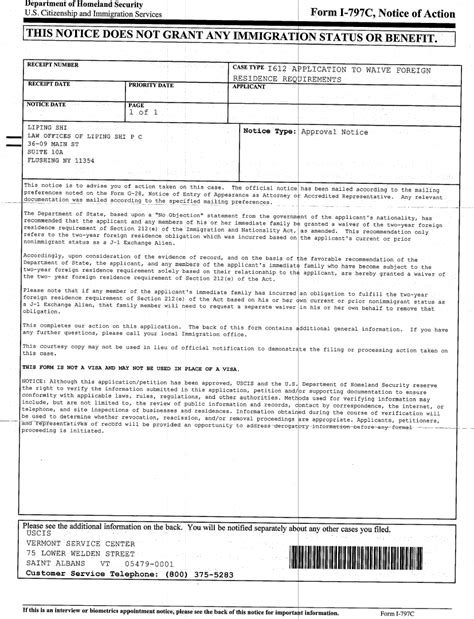The process of obtaining a Canadian waiver can be complex and daunting, but with the right approach, it is possible to increase the chances of approval. A Canadian waiver, also known as a Temporary Resident Permit (TRP), is a document that allows individuals who are otherwise inadmissible to enter Canada. In this article, we will explore five ways to get a Canadian waiver approved.
Understanding the Requirements for a Canadian Waiver
Before we dive into the ways to get a Canadian waiver approved, it's essential to understand the requirements for obtaining one. The Immigration and Refugee Protection Act (IRPA) outlines the grounds for inadmissibility, which include health, financial, and security concerns, among others. To be eligible for a waiver, applicants must demonstrate that their presence in Canada would not pose a risk to the country or its citizens.

1. Provide Detailed Documentation
One of the most critical factors in getting a Canadian waiver approved is providing detailed documentation. This includes police certificates, court documents, and medical reports, among others. It's essential to ensure that all documents are accurate, up-to-date, and translated into English or French, if necessary.
- Police certificates: Applicants must provide police certificates from their home country and any other country where they have lived for the past five years.
- Court documents: If an applicant has a criminal record, they must provide court documents, including a certified copy of the judgment and any other relevant documents.
- Medical reports: Applicants with health concerns must provide medical reports from a certified medical practitioner.

2. Demonstrate Rehabilitation
Applicants with a criminal record or other security concerns must demonstrate rehabilitation to be eligible for a waiver. This can be achieved by providing evidence of community service, counseling, or other activities that demonstrate a commitment to rehabilitation.
- Community service: Applicants can provide evidence of community service, such as volunteer work or charitable activities.
- Counseling: Applicants can provide evidence of counseling or therapy sessions, which demonstrate a commitment to rehabilitation.
- Letters of support: Applicants can provide letters of support from family members, friends, or employers, which demonstrate a commitment to rehabilitation.

3. Show a Strong Connection to Canada
Applicants with a strong connection to Canada are more likely to be approved for a waiver. This can include family ties, business connections, or other relationships that demonstrate a commitment to the country.
- Family ties: Applicants with family members living in Canada can provide evidence of their relationship, such as birth certificates or marriage certificates.
- Business connections: Applicants with business connections in Canada can provide evidence of their relationship, such as contracts or business agreements.
- Community involvement: Applicants who are involved in their community can provide evidence of their involvement, such as volunteer work or charitable activities.

4. Provide a Detailed Itinerary
Applicants must provide a detailed itinerary of their trip to Canada, including their travel plans, accommodation, and activities. This demonstrates that they have a clear plan for their trip and are not a risk to the country.
- Travel plans: Applicants must provide evidence of their travel plans, including flight itineraries or bus tickets.
- Accommodation: Applicants must provide evidence of their accommodation, including hotel reservations or rental agreements.
- Activities: Applicants must provide evidence of their activities, including tour bookings or event tickets.

5. Hire an Immigration Lawyer
Finally, applicants can increase their chances of approval by hiring an immigration lawyer. Immigration lawyers have extensive knowledge of the waiver process and can provide guidance on the application process.
- Experience: Immigration lawyers have experience with the waiver process and can provide guidance on the application process.
- Knowledge: Immigration lawyers have knowledge of the requirements for a waiver and can ensure that applicants meet the necessary criteria.
- Representation: Immigration lawyers can represent applicants during the application process, which can increase the chances of approval.

Gallery of Canadian Waiver






Frequently Asked Questions
What is a Canadian waiver?
+A Canadian waiver, also known as a Temporary Resident Permit (TRP), is a document that allows individuals who are otherwise inadmissible to enter Canada.
Who is eligible for a Canadian waiver?
+Applicants who are otherwise inadmissible to Canada due to health, financial, or security concerns may be eligible for a waiver.
What documentation is required for a Canadian waiver?
+Applicants must provide detailed documentation, including police certificates, court documents, and medical reports, among others.
In conclusion, obtaining a Canadian waiver can be a complex process, but by following these five steps, applicants can increase their chances of approval. It's essential to provide detailed documentation, demonstrate rehabilitation, show a strong connection to Canada, provide a detailed itinerary, and hire an immigration lawyer. By taking these steps, applicants can ensure that their application is complete and accurate, which can increase the chances of approval.
